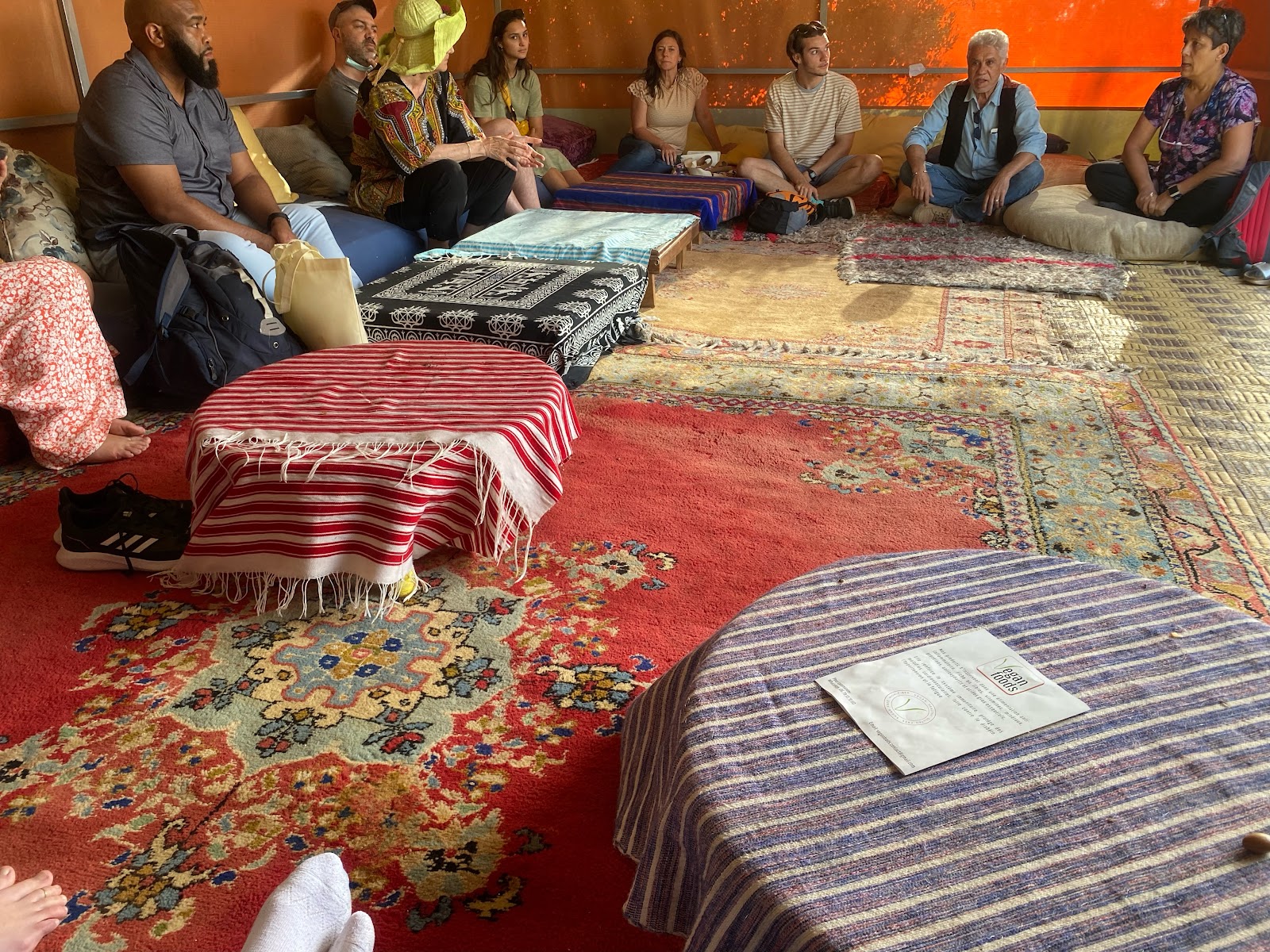All or Nothing - Communal perspectives abroad
Collectivism or communalism is the societal orientation towards putting the needs of the community or group before the needs of the individual within the group. https://www.britannica.com/topic/collectivism This is a common value in family structures that are non-western. The trend also carries over into Moroccan society. In collectivist societies, it is thought that advancing the group instead of the individual can be beneficial in achieving larger goals and building relationships. A very high emphasis is placed on community interdependence, familial ties, and taking care of one another.
Collectivism can have considerable benefits for communities that practice it. However, there are downfalls to having a communal society. Sometimes in communal cultures, families can get so wrapped up in pushing for the needs of the group, that the individual can feel smaller and oftentimes ignored. With this utilitarian view, groups run the risk of compromising the important intricacies of the personalities and needs of individual people. In the short term, it can lead to feelings of smallness. In more long term and extreme cases, it may feed negatively impact the mental health of individuals or spark underground tension between community members. https://www.psychologicalscience.org/observer/why-your-understanding-of-collectivism-is-probably-wrong
Morocco’s strong collectivism is the concept that has struck me the most during my short time in Morocco. Coming from a very individualistic culture, it is fascinating to me to see the ways Moroccans commit to the ideals of the group before they work on their own individual desires.
In the span of 3 days, I have seen several instances of collectivism at work on Moroccan farms, in discussions, and through bus windows. As a group, we have visited 3 different organic farms. The owner of the first farm, a sociology professor, initiated an interesting discussion with the group about Moroccan water rights & community water use. One phrase stuck out to me the most. When talking about sharing Casablanca’s limited water supply, she said that “if you try to take more water than you deserve, you are not part of the community.” She also talked about though a community member is often in charge of managing community distribution, they do not get any special privileges or water rights. As I reflected, this was almost unimaginable in my own culture. I cannot see my own community members unselfishly managing water without expecting individual gratification if we were to be in a similar situation. It takes a deep level of care and loyalty to advocate for and protect the community when your own family can benefit from differential treatment.
I can already see that collectivism is a large feature of Moroccan culture. Time and time again, I am told of the ways that the individual is made subordinate to the group for the greater good of the community as a whole. I look forward to further exploring more ways that collectivism shines in Moroccan culture over the course of this study abroad trip.




I found the connectivity of the groups extremely interesting as well. As today we visited Fez and the interconnectivity of other people's lives was stronger and more present here than anywhere else I have experienced in the world. With how organic the growing, relationships, and culture is there is no room for individualism here it seems. The quote you referenced about the water stuck with me too and I wrote it down so I find it interesting it stuck with others as well. I ask you if you think that what they have with this community is an ideal way of life and Americans should adopt this or it is unobtainable in America. If it is unobtainable then what do you think a common ground could be? I personally hope we can find one with polarization in the States. Perhaps the answer lies in the Moroccan way with what we have seen with a need to share resources such as water and agricultural supplies.
ReplyDelete